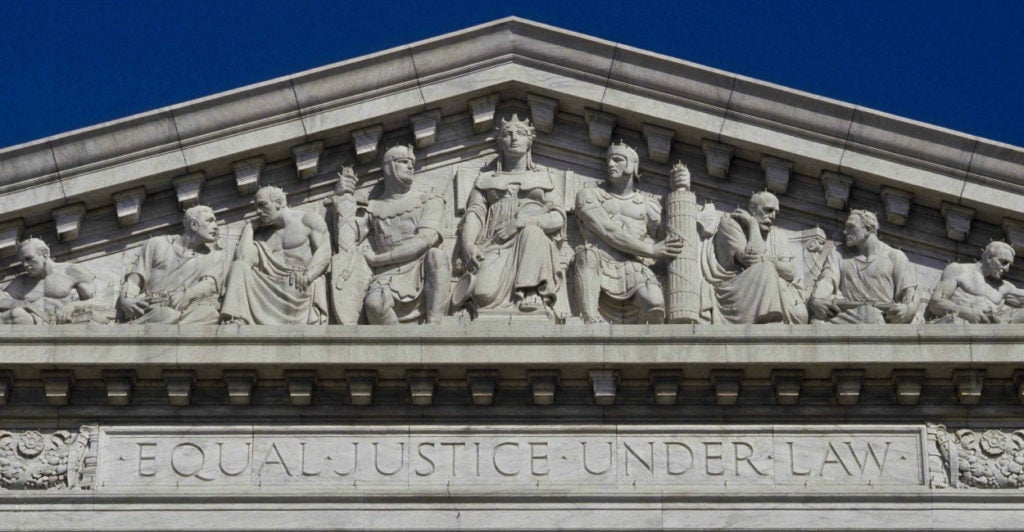When Americans cast their ballots for the next president this November, they will not only select the next commander in chief and primary enforcer of the law, they will help select a new Supreme Court justice and countless other lower court judges.
Selecting judges is not an ancillary responsibility—it is a central and critical duty, with long-lasting effects.
Selecting judges is not an ancillary responsibility—it is a central and critical duty, with long-lasting effects. Indeed, half of the current Supreme Court justices were appointed more than 20 years ago. The next president’s choices will have a big impact on the judiciary. He or she will nominate at least one (but possibly several) Supreme Court justice and roughly one-third of federal district court and appeals court judges.
The judiciary is often an overlooked third branch of government. Yet the judges who populate its ranks wield tremendous power to decide cases that affect the daily lives of millions of Americans.
It was not always this way—the Founders believed that the judiciary would be the “least dangerous” branch. Over time, however, the judiciary has transformed itself into a policymaking body that wields wide-ranging power over virtually every aspect of life, such as Americans’ ability to own a gun, make campaign donations to political candidates, and own a home free from government interference, among many others.
Judges do not simply appear out of thin air. They are put on the federal bench by the presidents who nominate them and the senators who confirm them. The first step in curbing the judiciary’s excesses is for the president to nominate and the Senate to confirm individuals with a proper understanding of the limited role of the judiciary.
The judiciary has transformed itself into a policymaking body that wields wide-ranging power over virtually every aspect of life.
Thus, the president should nominate individuals whose records demonstrate that they will apply the Constitution and laws according to their original public meaning. Likewise, senators should rigorously question nominees about their judicial philosophy and examine their records, and then vote to confirm only those nominees who understand the proper role a judge should play in our society.
If the president and Senate are able to do so, the result will be a federal judiciary filled with good judges who are committed to faithfully applying the Constitution and laws and are not outcome-oriented.
When the president and Senate have failed to do so, we end up with bad judges—those who interject subjective policy preferences into the law, strain the text to achieve desired ends, and read new rights into the Constitution that are not grounded in the text. The stakes have never been higher, and it is essential that the next president appoint good judges.
To learn more about the proper role of judges in our government, the road to confirmation for those nominated to be judges, and close cases in which a single Supreme Court justice made the difference in cases of incredible significance, check out The Heritage Foundation’s new booklet “Supreme Consequences: How a President’s Bad Judicial Appointments Threaten Your Liberty.”
